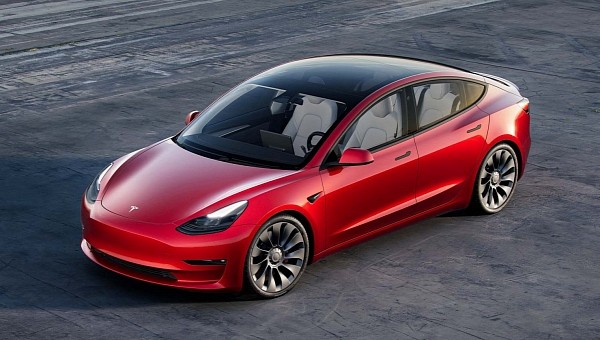Almost seven months after registering as a company and launching a recruiting effort in September looking for home-charging developers, charging infrastructure leads, technicians, store managers, and customer service reps in Thailand, Tesla will finally begin selling cars in the Kingdom.
The world's leading electric vehicle manufacturer by capitalization will initially offer their Model 3 and Model Y electric vehicles with a price starting at 1.75 million Thai Baht, which is equivalent to $49,859 (47,420 euro).
Sales will begin this month, and customers can expect to take delivery early in 2023, according to Thaiger Media.
Tesla had set its eyes on expanding into India, however, those plans were nixed as a result of high tariffs on imports into the country. It sounds as though Elon Musk may have worked his magic with the government concerning Thailand tariffs as they are known to be extreme. The company's plans concerning the Thai market at this point are limited to sales and not production or assembly of its electric vehicles in the country.
Musk and company are going into uncharted territory in the Kingdom that already has established electric vehicle manufacturers with a foothold; namely Great Wall Motor, Hozon Auto, and locally made MG.
Never one to shy away from competition, Musk must believe in the potential of Thailand as its middle-class growth continues to pick up steam.
In addition, Thailand's economy is ranked 13th out of 39 Asia-Pacific countries, despite being classified as a developing country. Automobile sales in Thailand totaled 559,537 vehicles in the first eight months of 2022, a 20% year-over-year increase; a stunning number when one takes into account the overall global economy.
The mega-metropolis and capital city of Bangkok often has some of the worst air quality in the world, prompting Thai Prime Minister Prayut Chan-o-cha’s to campaign for EV sales. The government created a fund of 3 million Thai Baht ($85,630 / 81,283 euro) to subsidize the selling price for consumers in Thailand.
As in other parts of the world that have persuaded consumers to opt away from gas-powered vehicles in favor of EVs, Thailand has a lot of work ahead to build the charging infrastructure needed to relieve charging anxiety among car shoppers.
Sales will begin this month, and customers can expect to take delivery early in 2023, according to Thaiger Media.
Tesla had set its eyes on expanding into India, however, those plans were nixed as a result of high tariffs on imports into the country. It sounds as though Elon Musk may have worked his magic with the government concerning Thailand tariffs as they are known to be extreme. The company's plans concerning the Thai market at this point are limited to sales and not production or assembly of its electric vehicles in the country.
Musk and company are going into uncharted territory in the Kingdom that already has established electric vehicle manufacturers with a foothold; namely Great Wall Motor, Hozon Auto, and locally made MG.
Never one to shy away from competition, Musk must believe in the potential of Thailand as its middle-class growth continues to pick up steam.
In addition, Thailand's economy is ranked 13th out of 39 Asia-Pacific countries, despite being classified as a developing country. Automobile sales in Thailand totaled 559,537 vehicles in the first eight months of 2022, a 20% year-over-year increase; a stunning number when one takes into account the overall global economy.
The mega-metropolis and capital city of Bangkok often has some of the worst air quality in the world, prompting Thai Prime Minister Prayut Chan-o-cha’s to campaign for EV sales. The government created a fund of 3 million Thai Baht ($85,630 / 81,283 euro) to subsidize the selling price for consumers in Thailand.
As in other parts of the world that have persuaded consumers to opt away from gas-powered vehicles in favor of EVs, Thailand has a lot of work ahead to build the charging infrastructure needed to relieve charging anxiety among car shoppers.





